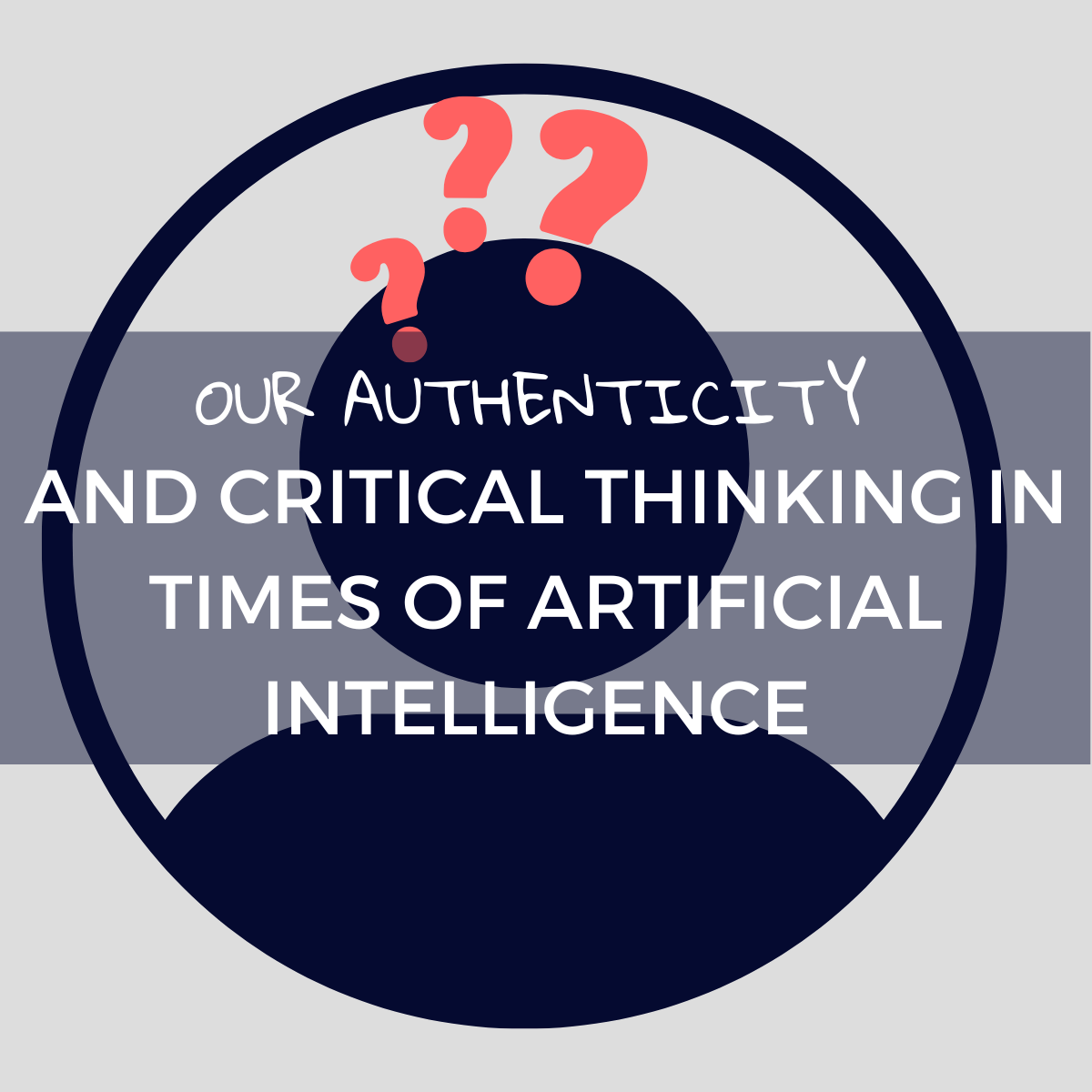
Our Authenticity and Critical Thinking in Times of Artificial Intelligence
Nowadays, there is a lot of talk about the capabilities of artificial intelligence (AI) and the impact it can have on our lives. We are in a phase of "hype," with new AI applications constantly emerging, promising extraordinary transformations.
My inbox is flooded with offers of AI courses and training programs.
However, it's crucial to maintain critical thinking to distinguish what is genuinely useful from what is just marketing.
The Distorted Image by AI
One example that concerns me is the use of AI to create unrealistic versions of ourselves by combining our faces with idealized bodies based on societal standards. By accepting these images, we often unconsciously accept these biases.
Our image should reflect who we truly are, not a fantasy shaped by external expectations. While experimenting with AI-generated avatars or artistic styles can be fun, allowing AI to create a so-called "ideal" version of our bodies is a dangerous path.
We cannot allow AI to distort our essence.
The Challenge of Keeping Our Voice
AI is also widely used in text creation. It’s true that it can generate coherent and sometimes impressive content. But do these texts truly reflect our voice? Often, they don’t. They are built on predictive patterns. If we aren’t careful, we risk losing our authenticity.
AI should support our communication, not replace it.
We must continue to create content that carries our personality, ideas, and unique vision.
Setting Boundaries and the Importance of Critical Thinking
Despite the growing acceptance of AI-generated content, such as copyright protections for partially AI-created works, clear boundaries must be established. AI can boost productivity, but it should not surpass our capacity for critical thought. We must retain control over our creations to ensure that our actions and ideas remain authentic.
This critical thinking is particularly relevant in the context of social media, where many users take the content they consume at face value. In a world dominated by digital influences and algorithms, there is a real risk that future generations may blindly trust AI-generated content, just as they do with social media today.
The Challenge of Regulations in Europe
Another point for reflection is the regulatory barriers we face in Europe, such as the GDPR and the EU AI Act. While these laws are necessary to protect privacy and data security, they often limit access to innovative AI tools like Sora or Apple's Intelligent Assistant, putting us at a disadvantage compared to other markets, especially in the workplace context.
Still, AI is an inevitable reality. Those who don’t learn how to use it will be left behind, much like those who never learned to use Google or a smartphone.
My Experience with AI
I started by creating a bot for the HR department of my company, Springevents, which specializes in providing professional host and hostess teams for events. The goal was for the bot to answer candidates’ questions about recruitment, payments, and uniforms. I initially used a simple service based on FAQs, but the responses were unsatisfactory. If I had released that bot, users would have quickly lost interest.
I realized I needed more control over the data and the bot's responses. I tried a more advanced app, but it was expensive (over €200/month) and had limitations on the number of bots and data files. After two months, I gave up on that solution.
I then sought another approach and found a no-code platform that gave me full control over the bot's behavior. This system, constantly evolving, required me to adapt the data multiple times, resulting in the current version, which no longer relies on a simple FAQ format.
It was a process of over 18 months, but it was highly enriching. Of course, a technical expert could have done it in hours, but I believe that to lead effectively, it's essential to understand at least the basics of what you're asking for. T
his knowledge empowers us to make better decisions as leaders, knowing when and how to use AI, while remembering that it’s not a solution for everything.
Conclusion
My advice is simple: use AI consciously. Let it be an ally, but never lose your authenticity. Critical thinking is what sets us apart and will determine the true impact of technology on our lives.
Preserve your voice, your ideas, and your unique value. AI can be a powerful tool, but it will never replace our humanity or critical thinking—the ability to adapt and respond when things don’t go as expected, especially in an event setting.
Be curious, explore, and stay true to who you are.
---------
NOTE: The original text was written by me in Portuguese . Then, i used AI to assist me on creating a better organized structure, however, who ever knows me, can recognize my spirit in these words.(English translation made using
